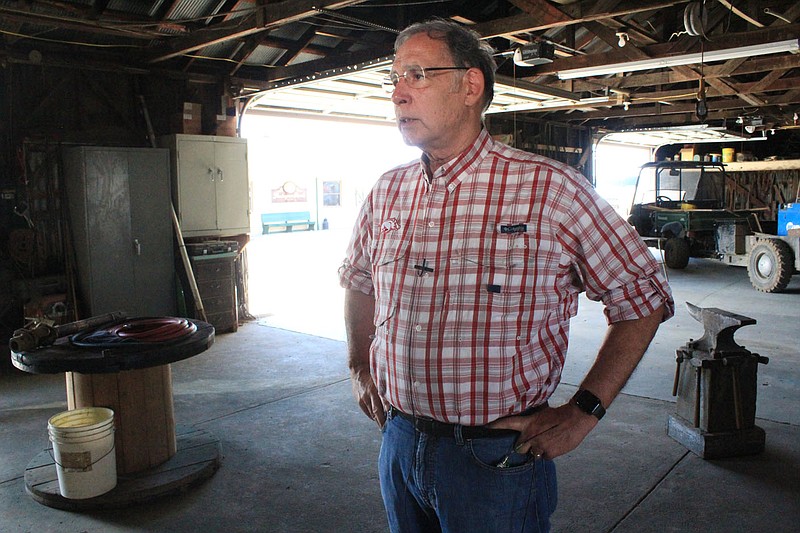CHARLESTON -- Federal money improves local cattle operations even if the dollars don't flow straight into the ranchers' pockets, a River Valley farmer recently said.
John Paul Pendergrass, owner of Pendergrass Cattle Co. in the Charleston area, said federally funded research has improved the quality of the cattle he raises. It's one of the reasons his farm's productivity has doubled in his lifetime, he said.
The research is important in Arkansas, where an estimated 25% of the state's gross domestic product is agriculture, said U.S. Sen. John Boozman, R-Rogers.
"Because of mechanization, because of research, because of being so much more productive, you don't need the people that we used to in order to grow our economy. So it's just everybody working together to maintain our ability to produce a great product at a very cheap price compared to the rest of the world," Boozman said.
The senator toured the farm Monday morning as part of a roundtable discussion with U.S. Rep. Bruce Westerman, R-Ark., and members of Tyson Foods, Riceland Foods, the Arkansas Farm Bureau and the Foundation for Food & Agriculture Research.
The U.S. has fallen behind China and Brazil in agricultural research money, according to a report from the Farm Journal Foundation and the American Farm Bureau Federation. The country's agricultural trade balance is at risk, the journal states.
Support for agricultural research in the U.S. would ensure safe and affordable food supplies, a Farm Journal news release states.
Congress in 2018 passed the Agriculture Improvement Act, devoting an estimated $428 billion to efforts including nutrition, crop insurance, conservation and commodities, according to the U.S. Department of Agriculture.
The Foundation for Food & Agriculture Research received $385 million from Congress between the farm bills passed in 2014 and 2018, according to Tim Kurt, foundation scientific program director. Another bill is due in 2023, Boozman said.
"Research, really, is the building block," Boozman said. That's why farmers are able to produce more crop on fewer acres and yet make sure the soil is healthy, he said.
Boozman estimated 85%-90% of the local economy in rural areas of the country is farming.
Pendergrass said his farm doesn't see much direct federal investment because he's largely focused on cattle. But he said the research that was discussed at his farm Monday has allowed his cows to genetically improve.
His farm can now hold up to 1,500 cattle that are raised and sent on to commercial feed yards. They're eventually sent to meat companies such as Tyson Foods, he said.
"The cattle are more productive," he said. "We have access to more tools in the box that help us be more productive."
Pendergrass Cattle Co. also contributes to the research by providing cattle to the experiment station in the stocker cattle unit at the University of Arkansas, he said.
More News
Historical Service
The U.S. Department of Agriculture was founded in 1862 by President Abraham Lincoln.
Source: USDA

